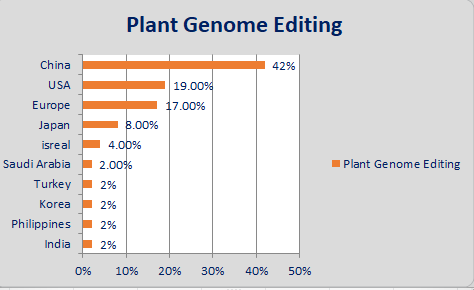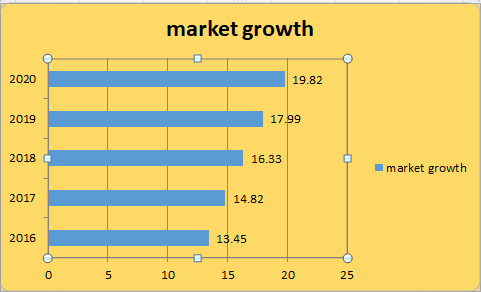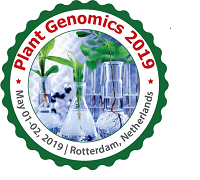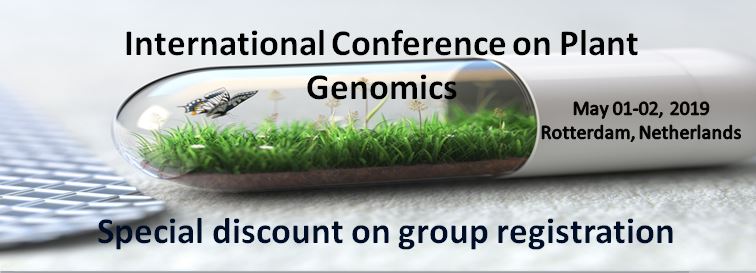About Conference
Conference Series LLC LTD invites all the participants from all over the world to attend International Conference On Plant Genomics during May 1-2, 2019 Rotterdam, Netherlands which includes prompt keynote presentations, Oral talks, Poster presentations, and Exhibitions.
Euro Plant Genomics 2019 is the premier event that brings together a unique and international mix of experts, researchers and decision makers both from academia and industry across the globe to exchange their knowledge, expertise and research innovations to build a world-class plant genomics conference.
It’s our greatest pleasure to welcome you to the official website of ‘International Conference On Plant Genomics that aims at bringing together the Professors, Researchers, scientists, Program developers to provide an international forum for the dissemination of original research results, new ideas, and practical development experiences which concentrate on both theory and practices. The conference will be held on May 1-2, 2019 Rotterdam, Netherlands. The theme of the conference is around, “Accelerating Innovations & Fostering Advances in Plant Genomics and Plant Science ”. Featuring 2days of the scientific workshop, special sessions, speaker & poster session, Industrial Expo. 300+ attendees from all over the world. The event focuses on aspects such Plant Genomic, Speciation & Origin of Genomes, Plant Genetics and Epigenetics, Plant Nutritional Genomics and Horticulture, Plant Science and Agricultural Sciences, Genome Sequencing and Plant Molecular Breeding, Plant Proteomics as well understanding tools to overcome the barrier and enable successful data analysis and management. Presentations concentrate not only particular to plant genomics but also crop and forestry research ranging from wheat, barley, maize and rice to potato, tomato, Arabidopsis, biofuels and various fruits. Conference Series LLC LTD organizes a conference series of 1000+ Global Events inclusive of 300+ Conferences, 500+ Upcoming and Previous Symposiums and Workshops in USA, Europe & Asia with support from 1000 more scientific societies and publishes 700+ Open access journals which contain over 30000 eminent personalities, reputed scientists as editorial board members.
Why to attend???
With members from around the world focused on learning about Plant Genomics and its advances; this is your best opportunity to reach the largest assemblage of participants from the Plant Science and Genomics community. Conduct presentations, distribute information, meet with current and potential scientists, make a splash with new advancements and developments, and receive name recognition at this 2-day event. World-renowned speakers, the most recent techniques, developments, and the newest updates in Plant Genomics are hallmarks of this conference.
Target Audience:
Major Plant Science Associations around the Globe
American Society of Plant Biologists (ASPB)
Australian Society of Plant Scientists (ASPS)
Argentinean Society of Plant Physiology (SAFV)
American Society of Agronomy (ASA)
African Crop Science Society (ACSS)
Brazilian Society of Plant Physiology (SBFV)
Botanical Society of China (BSC)
Canadian Society of Plant Biologists (CSPB)
Chile’s National Network of Plant Biologists (CNNPB)
Chinese Society of Plant Biology (CSPB)
Crop Science Society of America (CSSA)
Crop Science Society of China (CSSC)
European Association for Research on Plant Breeding (EUCARPIA)
European Plant Science Organization (EPSO)
Federation of European Societies of Plant Biology (FESPB)
Genetics Society of China (GSC)
International Society of Plant Pathology (ISPP)
Indian Society of Plant Physiology (ISPP)
International Crop Science Society (ICSS)
International Society for Horticultural Science (ISHS)
Irish Plant Scientists' Association (IPSA)
International Society for Plant Molecular Biology (ISPMB)
Japanese Society for Plant Cell and Molecular Biology (JSPCMB)
Japanese Society of Plant Physiologists (JSPP)
Korean Society of Plant Biologists (KSPB)
New Zealand Society of Plant Biologists (NZSPB)
Sessions & Tracks
Plant Genomics:
Genomics is a branch of genetics that is concerned with the sequencing and exploration of organism genome. Plant genomics is the field of advanced science that allows scientist to examine numerous number of genes and to understand the genetic architecture of plant genomes and identify the genes responsible for mutations. It also assist in maintaining the large number of database that serves us to analyse genetic differentiation and to grow new plant type.
Related Conferences : 7th Asia Pacific Plant Biology and Plant Science Congress May 01-02, 2019 Seoul, South Korea.7th Annual Congress on Plant Science February 28-March 01, 2019 Osaka, Japan; 12th World Congress on Plant Biotechnology & Agriculture April 08-09, 2019 Prague, Czech Republic;
Related Societies : American Society of Plant Biologists (ASPB), Australian Society of Plant Scientists (ASPS), Argentinean Society of Plant Physiology (SAFV), American Society of Agronomy (ASA), African Crop Science Society (ACSS)
Speciation & Origin of Genomes:
Genomes have evolved in nature and populations in the past as well as in modern schedule have been evolving. There are many ways of origin of species in nature and the parental genome is developed and modified. Some of these natural process include genetic mutations, polyploidy, especially natural hybridizations, chromosomal aberrations and corresponding many inherent molecular mechanisms operative within individuals.
Related Conferences : 12th World Congress on Plant Biotechnology & Agriculture April 08-09, 2019 Prague, Czech Republic; 7th Asia Pacific Plant Biology and Plant Science Congress May 01-02, 2019 Seoul, South Korea.7th Annual Congress on Plant Science February 28-March 01, 2019 Osaka, Japan;
Related Societies : African Crop Science Society (ACSS) American Society of Plant Biologists (ASPB), Australian Society of Plant Scientists (ASPS), Argentinean Society of Plant Physiology (SAFV), American Society of Agronomy (ASA).
Plant Genetics and Epigenetics:
Plant Genetics is a wide spectrum term, the concept of genetics is the branch of biology and it deals with heredity, especially the mechanisms of hereditary transmission and the variation of inherited characteristics among parallel or related organisms. There are multiple types of genetics in general. Plant genetics deals with the activities of the plant that results the day to day life processes of the plant.
Related Conferences 7th Annual Congress on Plant Science February 28-March 01, 2019 Osaka, Japan; 12th World Congress on Plant Biotechnology & Agriculture April 08-09, 2019 Prague, Czech Republic; 7th Asia Pacific Plant Biology and Plant Science Congress May 01-02, 2019 Seoul, South Korea.
Related Societies Brazilian Society of Plant Physiology (SBFV), Botanical Society of China (BSC), Canadian Society of Plant Biologists (CSPB), Chile’s National Network of Plant Biologists (CNNPB)
Plant Nutritional Genomics and Horticulture:
Plant nutrition is ultimately an applied subject that seeks to interprets the processes and mechanisms that underpin the uptake, assimilation and internal redistribution of nutrients by plants and this information is used to improve the yield or quality of harvested plant parts, be they grains, storage roots or leafy vegetables. The subject now also encompasses to understanding the responses of plants to nutrient toxicities as well as new topics such as metal ‘hyper accumulation’ and its exploitation in soil decontamination.Horticulture Sciences is the part of agriculture that deals with the art, science, technology, and business of vegetable garden plant growing.
Related Conferences 7th Annual Congress on Plant Science February 28-March 01, 2019 Osaka, Japan; 12th World Congress on Plant Biotechnology & Agriculture April 08-09, 2019 Prague, Czech Republic; 7th Asia Pacific Plant Biology and Plant Science Congress May 01-02, 2019 Seoul, South Korea.
Related Societies Brazilian Society of Plant Physiology (SBFV), Botanical Society of China (BSC), Canadian Society of Plant Biologists (CSPB), Chile’s National Network of Plant Biologists (CNNPB)
Plant Science and Agricultural Sciences:
Plant Science is placed around the genetic and cell switch of the plant expansion and enhancement in establish classes, crops and their wild relations employing genomics, proteomics, backgrounds science and boosted bright microscopy. Plant Science is a significant focal point of reasonable research undertaking at ANU, distribution overall from the dimensions, vitality, associations, and hereditary qualities and demonstrating of plants and their surroundings.
Agricultural science is the part of science that involves in the development of biological systems for the sustainable production of fibre and food. It has the capacity to lower the cost of raw materials, increase farming revenue and also improves environmental quality. Sustainable management of land and soil will support agricultural productivity, climate change mitigation, food security, and a wide range of ecosystem services.
Related Conferences : 7th Asia Pacific Plant Biology and Plant Science Congress May 01-02, 2019 Seoul, South Korea.7th Annual Congress on Plant Science February 28-March 01, 2019 Osaka, Japan; 12th World Congress on Plant Biotechnology & Agriculture April 08-09, 2019 Prague, Czech Republic;
Related Societies : American Society of Plant Biologists (ASPB), Australian Society of Plant Scientists (ASPS), Argentinean Society of Plant Physiology (SAFV), American Society of Agronomy (ASA), African Crop Science Society (ACSS)
Genome Sequencing and Plant Molecular Breeding:
Plant Breeding is the method in which humans deliberately change the characteristics of plants overtime to make them better crops and more nourishing food. Population genetics involves in the examination and modelling of characteristic changes in the frequencies of genes and alleles in plant populations over time and space. These are two methods in plant breeding- Conventional method and Unconventional method.
Related Conferences : 7th Asia Pacific Plant Biology and Plant Science Congress May 01-02, 2019 Seoul, South Korea.7th Annual Congress on Plant Science February 28-March 01, 2019 Osaka, Japan; 12th World Congress on Plant Biotechnology & Agriculture April 08-09, 2019 Prague, Czech Republic;
Related Societies : American Society of Plant Biologists (ASPB), Australian Society of Plant Scientists (ASPS), Argentinean Society of Plant Physiology (SAFV), American Society of Agronomy (ASA), African Crop Science Society (ACSS)
Plant Proteomics:
Plant proteomics is an in-depth study of a specific proteome, including information on protein and its modifications and variations. Plant Proteomics is concerned with the entire complement of proteins of the plants including the modifications made to a particular set of proteins. Plant proteomics works with the cooperating accomplices and individuals related to it in a consecutive system.
Related Conferences : 12th World Congress on Plant Biotechnology & Agriculture A pril 08-09, 2019 Prague, Czech Republic; 7th Asia Pacific Plant Biology and Plant Science Congress May 01-02, 2019 Seoul, South Korea.7th Annual Congress on Plant Science February 28-March 01, 2019 Osaka, Japan;
Related Societies : African Crop Science Society (ACSS) American Society of Plant Biologists (ASPB), Australian Society of Plant Scientists (ASPS), Argentinean Society of Plant Physiology (SAFV), American Society of Agronomy (ASA),
Plant Signalling and Chemical Signalling:
Plant signaling is the capacity of plants to identify and respond to the earth to change their morphology, physiology, and phenotype in like manner. Different subdivisions like plant physiology, nature, and atomic science are used to examine the capacities of the plant. Plants responds for chemicals, gravity, light, dampness, contaminations, temperature, oxygen and carbon dioxide focuses, parasite pervasion, malady, physical disturbance, sound, and touch.
Many chemicals are analytics for plant growth and development and in integrating various stress signals and controlling downstream stress responses by modulating gene expression machinery and regulating various pumps and biochemical reactions. Plant hormones are also responsible for chemical signaling in plants. The drought signaling in plants due to Abscisic acid during the time when there is stress on water availability.
Related Conferences 7th Annual Congress on Plant Science February 28-March 01, 2019 Osaka, Japan; 12th World Congress on Plant Biotechnology & Agriculture April 08-09, 2019 Prague, Czech Republic; 7th Asia Pacific Plant Biology and Plant Science Congress May 01-02, 2019 Seoul, South Korea.
Related Societies Brazilian Society of Plant Physiology (SBFV), Botanical Society of China (BSC), Canadian Society of Plant Biologists (CSPB), Chile’s National Network of Plant Biologists (CNNPB)
Genetically Modified Organisms and Tissue Culture:
Genetically Modified Organism is a plant, creature, microorganism or another life form whose hereditary cosmetics has been adjusted utilizing recombinant DNA( rDNA) techniques. This temperately novel science makes an unpredictable merger of plants, creatures, bacterial and viral potentials that don't occur in landscape or through predictable hybridizing procedures. Genetically Modified Organism is any living being whose hereditary material has been changed and utilizing hereditary designing systems.
Plant tissue culture is the technique of developing and maintaining plant cells, tissues or organs particularly on stimulated medium in suitable containers and maintains it in controlled environmental conditions. Any segment of a plant is taken out which is known as explant and grown in a test tube under complete sterile conditions. Cell seggrigation from explant forms callus which can be grown into another new plant.
Related Conferences 7th Annual Congress on Plant Science February 28-March 01, 2019 Osaka, Japan; 12th World Congress on Plant Biotechnology & Agriculture April 08-09, 2019 Prague, Czech Republic; 7th Asia Pacific Plant Biology and Plant Science Congress May 01-02, 2019 Seoul, South Korea.
Related Societies Brazilian Society of Plant Physiology (SBFV), Botanical Society of China (BSC), Canadian Society of Plant Biologists (CSPB), Chile’s National Network of Plant Biologists (CNNPB)
Plant Synthetic Biology and Plant Transcriptome:
Plant synthetic biology is the field of science that incorporates engineering principles with plant biology toward the design, production of new devices, traditional crop improvement and novel bioproduction in plants.
Plant Transcriptome is the set of all RNA molecules in one cell or a population of cells. It differs from the exome in that it includes only those RNA molecules found in a specified cell population, and usually includes the amount of each RNA molecule in addition to the molecular identities.
Related Conferences : 7th Asia Pacific Plant Biology and Plant Science Congress May 01-02, 2019 Seoul, South Korea.7th Annual Congress on Plant Science February 28-March 01, 2019 Osaka, Japan; 12th World Congress on Plant Biotechnology & Agriculture April 08-09, 2019 Prague, Czech Republic;
Related Societies : American Society of Plant Biologists (ASPB), Australian Society of Plant Scientists (ASPS), Argentinean Society of Plant Physiology (SAFV), American Society of Agronomy (ASA), African Crop Science Society (ACSS)
Plant Nanotechnology and Plant Pest Management:
The agronomic use of nanotechnology in plants can probably regulate normal plant generation backgrounds, taking into interpretation the skillful onset of agrochemicals and target-particular transference of biomolecules ). An improved understanding of the networks among nanoparticles and plant reactions, including their take-up, limitation, and action, could alter edit creation through expanded malady opposition, supplement use, and harvest yield. Nano agribusiness includes the work of Nano particles in farming these particles will give valuable impacts to crops.
Maintenance of crop health is important for successful farming in both qualities of produce and crop yield. The need of agricultural pest management is increasing day by day because one-fourth of the crop yield is being useless due to pest damage on crops.
Related Conferences : 7th Asia Pacific Plant Biology and Plant Science Congress May 01-02, 2019 Seoul, South Korea.7th Annual Congress on Plant Science February 28-March 01, 2019 Osaka, Japan; 12th World Congress on Plant Biotechnology & Agriculture April 08-09, 2019 Prague, Czech Republic;
Related Societies : American Society of Plant Biologists (ASPB), Australian Society of Plant Scientists (ASPS), Argentinean Society of Plant Physiology (SAFV), American Society of Agronomy (ASA), African Crop Science Society (ACSS), Brazilian Society of Plant Physiology (SBFV), Botanical Society of China (BSC), Canadian Society of Plant Biologists (CSPB), Chile’s National Network of Plant Biologists (CNNPB)
Plant Anatomy, Metabolism, Regulation and Phytology:
Plant anatomy is the part of botany, which is concerned with the study of the internal structure of plants. It is called as Phytotomy. Understanding plant function is the key to enhancing crop production, producing medicines, preserving plant biodiversity. Plant metabolism is known as the complex of chemical and physical events of respiration, photosynthesis, and the synthesis and degradation of organic compounds. Phytology deals with the scientific study of plants.
Related Conferences : 7th Asia Pacific Plant Biology and Plant Science Congress May 01-02, 2019 Seoul, South Korea.7th Annual Congress on Plant Science February 28-March 01, 2019 Osaka, Japan; 12th World Congress on Plant Biotechnology & Agriculture April 08-09, 2019 Prague, Czech Republic;
Related Societies : American Society of Plant Biologists (ASPB), Australian Society of Plant Scientists (ASPS), Argentinean Society of Plant Physiology (SAFV), American Society of Agronomy (ASA), African Crop Science Society (ACSS), Brazilian Society of Plant Physiology (SBFV), Botanical Society of China (BSC), Canadian Society of Plant Biologists (CSPB), Chile’s National Network of Plant Biologists (CNNPB)
Transgenic Plants and Phytotoxins:
Transgenic plants are obtained by introducing new characters to the plants by recombinant DNA technology. Plants containing transgenes are also called genetically modified crops. These transgenic plants are developed by biolistic methods. Phytotoxins refers to toxic substance obtain from plants. These Phytotoxins create a significant change when it enters into the human food chain by disturbing ion channels and it blocks the activity of the central nervous system. maybe growth inhibitors, neurotoxins, carcinogens, and teratogens.
Related Conferences 7th Annual Congress on Plant Science February 28-March 01, 2019 Osaka, Japan; 12th World Congress on Plant Biotechnology & Agriculture April 08-09, 2019 Prague, Czech Republic; 7th Asia Pacific Plant Biology and Plant Science Congress May 01-02, 2019 Seoul, South Korea.
Related Societies Brazilian Society of Plant Physiology (SBFV), Botanical Society of China (BSC), Canadian Society of Plant Biologists (CSPB), Chile’s National Network of Plant Biologists (CNNPB)
Bioinformatics and Data Analysis of Plants:
Bioinformatics has transformed into a fundamental tool of various zones of science. in exploratory nuclear science bioinformatics frameworks for instance picture and banner taking care of allow extraction of supportive results from a great deal of rough data.
The plant co-articulation is alternative web-based technique used for plant superiority investigation A common co-communicated class can creat frequent activities of co-articulation material that hold numerous potentials of enthusiasm for improvement investigation and also, co-communicated qualities can be distinguished and inventoried as long as near genomics by utilizing the 'Co-articulation quality analyze' highlight.
Related Conferences : 7th Asia Pacific Plant Biology and Plant Science Congress May 01-02, 2019 Seoul, South Korea.7th Annual Congress on Plant Science February 28-March 01, 2019 Osaka, Japan; 12th World Congress on Plant Biotechnology & Agriculture April 08-09, 2019 Prague, Czech Republic;
Related Societies : American Society of Plant Biologists (ASPB), Australian Society of Plant Scientists (ASPS), Argentinean Society of Plant Physiology (SAFV), American Society of Agronomy (ASA), African Crop Science Society (ACSS)
Comparative Genomics of extinct &extant groups:
Present DNA technological approaches have progressed in such a way that we have been able to find homologyamong organisms and trace for evolutionary mechanisms even for a fate of a few nucleotides and also analyze the path and time of evolutionary deviations among different organisms. Not only based on anthropological point of view, but also from the homology of DNA sequences we have proved that Homo sapiens arose after hybridization in between two species of Homo.
Related Conferences : 12th World Congress on Plant Biotechnology & Agriculture April 08-09, 2019 Prague, Czech Republic; 7th Asia Pacific Plant Biology and Plant Science Congress May 01-02, 2019 Seoul, South Korea.7th Annual Congress on Plant Science February 28-March 01, 2019 Osaka, Japan;
Related Societies : African Crop Science Society (ACSS) American Society of Plant Biologists (ASPB), Australian Society of Plant Scientists (ASPS), Argentinean Society of Plant Physiology (SAFV), American Society of Agronomy (ASA),
Market Analysis
Market Analysis:
Plant Genomics 2019 welcomes all the attendees, presenters, associations and exhibitors from all over the world to Rotterdam, Netherlands. We are delighted to invite you all to attend the “International Conference on Plant Genomics” which is going to be held during May 01-02, 2019 in Rotterdam, Netherlands. This Congress Committee is gearing up for an exciting and informative conference program including plenary lectures, symposia, workshops on informative topics, poster presentations and various programs for participants from all over the world. We invite you to join us at the Plant Genomics 2019, to share meaningful experience with scholars from around the world. We look forward to see you at Rotterdam, Netherlands.
For more info: https://plantgenomics.conferenceseries.com/europe/
Importance and scope of Plant Genomics:
Plant genomics is a progressively vital space of science that has enlarged in recent years because of the development of advanced technologies and ways. Information of plant genomics helps researchers to reinforce production, confer resistance or tolerance to adverse conditions and improve crops. The recent advances in plant genomics and bioinformatics have a major impact on plant science and genetic science. New strategies and technology have crystal rectifier to a larger understanding of each structural genomics and functional genomics. Plant genomics generates opportunities to form crops with improved traits. With the actual fact of growing world population, dynamical climate, and environmental pressure, there's an imperative ought to accelerate breeding novel crops with higher production, drought or heat tolerance, and fewer chemical usage. Advances in genetic science provide the potential to hurry up the method of developing crops with promising science traits. Plant genetic science is that the application of genomics to enhance the productivity and property in crop and stock production.
Plant genetic science has roots in agriculture and Plant genetic science additionally has scope in agriculture fields, medicine, food production and textiles. it's the most supply of food for creature. further as we are able to get plant proteins, phytochemicals from plants, from medicative plants some medicines square measure ready, and which may cure some fatal diseases. type some recent study it's evidenced that plant inhibitor helps North American country to shield from radical harm. By victimization Phytochemicals some neoplastic cell proliferation will be prevented at earlier stage. Beside that we will increase the nutrition price of plant by plant biotechnology and plant breeding. Currently days inexperienced energy is employed as non-conventional supply of energy to cut back environmental pollution. So, in human life Plant genetic science and plant-oriented studies are substantially necessary to sustain during this planet.

Why to attend?
With members from around the world centred on learning regarding Plant genomics and its advances; this can be your best chance to achieve the most important assemblage of participants from the Plant genomics community. Conduct displays, distribute info, meet with current and potential scientists, create a splash with new discoveries within the advanced Molecular techniques, and receive name recognition at this event. World-renowned speakers, the foremost recent techniques, developments, and therefore the newest updates in Experimental Plant Biology, genomics, proteomics, organic chemistry, physiology, cell biology, genetics are hallmarks of this conference.
Why Rotterdam:
Rotterdam is the second-largest town and a municipality of the Netherlands. a significant logistical and economic centre, Rotterdam is Europe's largest port. It’s a population of 633,471 (2017).] Rotterdam is understood for its Erasmus University, its riverside setting, spirited cultural life and maritime heritage. Consistent with a recent space analysis, town centre encompasses a singles population of seventieth, between the ages of twenty and forty, significantly over alternative town areas. Conjointly town centre incorporates an abundant larger population of individuals with educational activity and better financial gain
As a part of Rotterdam’s sustainability ambitions, to form town a lot of engaging for standard of living, work and recreation, sturdy support is given to urban agriculture. Several concrete comes, with or while not involvement of the municipality, showcase this nowadays. In its strategy to market urban agriculture, the city municipality has outlined variety of actions like raising nationals’ awareness of healthy food; exchanging data between faculties on urban agriculture associate degree gardening; facilitating farmers’ markets to produce native products; assessing the potential for employment within the inexperienced sector; mapping town areas appropriate for agriculture; and an annual competition for the most effective citizen initiative in urban agriculture.
Members Associated with Plant genomics:
Plant Genomics Students, Scientists, Plant Genomics Researchers, Plant Genomics Faculty, Agricultural Colleges, Plant and Agriculture Associations and Societies, Business Entrepreneurs, Training Institutes, Software developing companies, Manufacturing Agricultural Devices Companies.
Industry 40%
Academia 50%
Others 10%

Statistical Analysis of Members Associated with Plant Genomics
Universities in Rotterdam:
-
Erasmus University Rotterdam
-
Erasmus MC
-
Erasmus University College
-
Hogeschool Rotterdam
Universities in Netherland:
-
Leiden University
-
Utrecht University
-
University of Groningen
-
Radboud University Nijmegen
-
University of Amsterdam
-
VU University Amsterdam
-
Wageningen University and Research Center
-
Maastricht University
Top Universities around the Globe:
-
Harvard University
-
Massachusetts Institute of Technology
-
University of Cambridge
-
Stanford University
-
University of California--San Francisco
-
University of Oxford
-
University of Washington
-
Johns Hopkins University
-
Yale University
-
University of California--San Diego
-
University of Toronto
-
University of Pennsylvania
-
Washington University in St. Louis
-
University of California--Berkeley
-
Cornell University
-
Karolinska Institute
-
University of California--Los Angeles
-
Columbia University
-
University of Chicago
-
University College London
-
University of Copenhagen
-
University of Michigan--Ann Arbor
-
Imperial College London
-
Baylor College of Medicine
-
University of Edinburgh
-
University of Munich
-
University of North Carolina--Chapel Hill
-
King's College London
-
Pierre and Marie Curie University
-
Erasmus University Rotterdam
-
Duke University
-
Leiden University
-
University of Texas Southwestern Medical Center--Dallas
-
McGill University
-
University of Helsinki
-
University of Queensland Australia
-
Heidelberg University
-
Rockefeller University
-
Utrecht University
-
University of Southern California
Plant science associations in Netherland:
-
THE ROYAL NETHERLANDS SOCIETY FOR AGRICULTURAL SCIENCES
-
Royal Botanical Society of the Netherlands
-
Netherlands Genomics Initiative (NGI)
-
conventional genome wide association (GWA)
Major Plant Science Associations around the Globe
-
American Society of Plant Biologists (ASPB)
-
Australian Society of Plant Scientists (ASPS)
-
Argentinean Society of Plant Physiology (SAFV)
-
American Society of Agronomy (ASA)
-
African Crop Science Society (ACSS)
-
Brazilian Society of Plant Physiology (SBFV)
-
Botanical Society of China (BSC)
-
Canadian Society of Plant Biologists (CSPB)
-
Chile’s National Network of Plant Biologists (CNNPB)
-
Chinese Society of Plant Biology (CSPB)
-
Crop Science Society of America (CSSA)
-
Crop Science Society of China (CSSC)
-
European Association for Research on Plant Breeding (EUCARPIA)
-
European Plant Science Organization (EPSO)
-
Federation of European Societies of Plant Biology (FESPB)
-
Genetics Society of China (GSC)
-
International Society of Plant Pathology (ISPP)
-
Indian Society of Plant Physiology (ISPP)
-
International Crop Science Society (ICSS)
-
International Society for Horticultural Science (ISHS)
-
Irish Plant Scientists' Association (IPSA)
-
International Society for Plant Molecular Biology (ISPMB)
-
Japanese Society for Plant Cell and Molecular Biology (JSPCMB)
-
Japanese Society of Plant Physiologists (JSPP)
-
Korean Society of Plant Biologists (KSPB)
-
New Zealand Society of Plant Biologists (NZSPB)
Investment in Plant Genomics:
Investing in plant genomics is two to four times more practical at reducing hunger and economic condition than the other sector, resulting in larger farmer incomes, higher education of farm youngsters, additional investment in rural development and accrued food production. Crop Life International member corporations have helped small-scale farmers round the world improve their livelihoods by delivering plant science technologies and finance in developing agricultural geographies. Crop Life International member corporations and alternative entities are jointly investment US$3 billion in Africa’s agricultural sector to spice up food security and farmers’ financial gain through the Grow Africa partnership. Over sixty per cent of Africa’s operating population is utilized in agriculture. Crop Life International member firms and alternative entities are jointly investment US$3 billion in Africa’s agricultural sector to spice up food security and farmers’ financial gain through the Grow Africa partnership. Individual corporations also are beginning their own connected initiatives, like serving to thirty five, small-scale Ethiopian farmers increase maize productivity through a complicated Maize Seed Adoption Program, with an investment of US$4 million over successive three years.
Market Growth:
The global genomics market has been valued at USD thirteen.45 Billion in 2016 and is anticipated to grow at a CAGR (Compound Annual Growth Rate) of ten.2% to achieve to USD twenty four.06 Billion by 2022. The expansion of the general marketplace for genomics may be attributed to the growing demand for customized drugs, growing investments, grants, and funds by the government; rise in analysis activities within the field of genomics; increasing variety of start-up companies; and increasing application of genomic sequencing within the diagnostics. Within the returning years, North America is predicted to account for the most important share of the global genomics market. Base year thought of for the report is 2016 and therefore the forecast amount includes 2017–2022.

Visa and Embassy
Visa And Embassy
Plant Genomics 2019 organizing committee hereby reiterates that we are NOT authorized to assist with any Visa application works. You may be required to submit a Letter of Invitation, Letter of Abstract Acceptance and Registration Payment Receipt to the embassy.
Letter of Invitation: A Letter of Invitation is a proof that your paper submission and registration application are accepted by the conference committee board. It will be stated in English and may help with your visa application.
Token Amount: Token amount of USD 100 can be paid and payment receipt can be a proof for payment and may help with your VISA application.
**SHOULD YOUR APPLICATION BE DENIED, Plant Genomics 2019 ORGANIZING COMMITTEE CANNOT CHANGE THE DECISION OF THE MINISTRY OF FOREIGN AFFAIRS, NOR WILL WE ENGAGE IN DISCUSSION OR CORRESPONDENCE WITH THE MOFA OR THE EMBASSY ON BEHALF OF THE APPLICANT. THE REGISTRATION FEE WILL BE REFUNDED WHEN THE VISA APPLICATION OF INDIVIDUAL IS DENIED AND SHOULD SUBMIT VISA REJECTION PROOF**
Abstract Submission Criteria & Eligibility
Abstract Submission Criteria & Eligibility
PRESENTATION REQUIREMENTS:
Presenting authors are responsible for registration, travel, and hotel costs. Note: Those with accepted abstracts will receive an acceptance mail allowing them to register for the conference.
Abstracts will be compiled and conference books are made available to participants at the conference.
Any presenter who is unable to attend should arrange for another qualified individual to present the paper/poster in question. If such a change is necessary, please notify our conference team
SUBMISSION OPTIONS:
Oral paper presentations will have 30-minute time slots and be clustered by theme into sessions. The keynote session will have for 45-minute time slot, workshop/ special session will have 60-minute time slot and symposium will have 60-minute time slot followed by 5-minute Q&A session.
Graduate & Masters students are eligible to submit their abstracts under poster and e-poster presentation category.
Ph.D. students are eligible to submit their abstract under special YRF (young researcher’s forum), poster and e-poster presentation category.
NOTE: YRF category includes short oral presentation especially for Ph. D. students
Extended abstract: Submissions should utilize the Abstract Template. Papers submitted in this category may represent original empirical research, theoretical development, reviews, or critiques.
Abstract & Registration Deadlines
Submission Deadlines
Early Bird Abstract Submission: December 30, 2019
Second Line Abstract Submission: February 20, 2019
Final Submission Deadline: May 01, 2019
Registration Deadlines
Early Bird: December 30, 2019
Second Round: February 20, 2019
Final Registration: May 01, 2019
Past Conference Report
Plant Genomics 2018
The “8th World Congress on Plant Genomics and Plant Science” hosted by the Conference series LLC Ltd held during August 10-11 at Osaka, Japan.
The conference was organized on a single theme “Exploring the Current Frontiers in plant Genomics & Plant Science” which comprised of 14 Tracks designed to offer comprehensive sessions that address current issues in the field of Plant Science and Plant Genomics. This annual conference brought together eminent scientists from more than 25 countries in which many critical issues were discussed in depth, to provide up-to-date information to the world. On the other hand, the meeting provided a best platform for young researchers to share their ideas and experiences and for eminent people to speak on their scientific research.
The conference was greeted by the welcome message by our moderator Mr. Karl B W Svatos, Murdoch University, Murdoch, Australia and initiated with a keynote series of well-known speaker Rachel Swee-Suak Ko, Agricultural Biotechnology Research Center, Taiwan and Magdy Montasser, University of Kuwait, Kuwait and Sachiko Isobe, Kazusa DNA Research Institute, Japan and Zhang Daoyuan, Xinjiang institute of Ecology and Geography, China and Rachel Swee-Suak Ko, Agricultural Biotechnology Research Center, Taiwan.
Conferenceseries LLC Ltd wishes to acknowledge all the Organizing Committee Members, Moderator, Keynote Speakers, Chair and Co-chair, Editorial Board Members of Conferenceseries LLC Ltd group journals, Speakers, Students, Delegates, Associations and Media Partners in making this event a great success. We are also obliged to various delegate experts, company representatives and other eminent personalities who supported the conference by facilitating active discussion forums. We sincerely thank the Organizing Committee Members for their gracious presence, support, and assistance with the unique feedback from the conference.
Conferenceseries LLC Ltd would like to announce on the "International Conference on Plant Genomics" to be held during May 01-02, 2019 at Rotterdam, Netharland.
The Keynote presentations were given by:
Rachel Swee-Suak Ko | Agricultural Biotechnology Research Center | Taiwan
Magdy Montasser | Kuwait University | Kuwait
Zhang Daoyuan | Xinjiang institute of Ecology and Geography | China
Rachel Swee-Suak Ko | Agricultural Biotechnology Research Center | Taiwan
We would like to thank each attendee of the conference and hope this support will extend for the upcoming conference.
Past Reports Gallery






















